Hyundai Bayon vs Toyota Corolla Touring Sports - Differences and prices compared
Compare performance (100 HP vs 178 HP), boot space and price (20100 £ vs 29600 £) at a glance. Find out which car is the better choice for you – Hyundai Bayon or Toyota Corolla Touring Sports?
Costs and Efficiency:
Price and efficiency are key factors when choosing a car – and this is often where the real differences emerge.
Hyundai Bayon has a decisively advantage in terms of price – it starts at 20100 £, while the Toyota Corolla Touring Sports costs 29600 £. That’s a price difference of around 9548 £.
Fuel consumption also shows a difference: Toyota Corolla Touring Sports manages with 4.40 L and is therefore distinct more efficient than the Hyundai Bayon with 5.40 L. The difference is about 1 L per 100 km.
Engine and Performance:
Under the bonnet, it becomes clear which model is tuned for sportiness and which one takes the lead when you hit the accelerator.
When it comes to engine power, the Toyota Corolla Touring Sports has a convincingly edge – offering 178 HP compared to 100 HP. That’s roughly 78 HP more horsepower.
In acceleration from 0 to 100 km/h, the Toyota Corolla Touring Sports is significantly quicker – completing the sprint in 7.50 s, while the Hyundai Bayon takes 11.30 s. That’s about 3.80 s faster.
In terms of top speed, the Toyota Corolla Touring Sports performs slight better – reaching 180 km/h, while the Hyundai Bayon tops out at 179 km/h. The difference is around 1 km/h.
Space and Everyday Use:
Whether family car or daily driver – which one offers more room, flexibility and comfort?
Both vehicles offer seating for 5 people.
In curb weight, Hyundai Bayon is noticeable lighter – 1170 kg compared to 1485 kg. The difference is around 315 kg.
In terms of boot space, the Toyota Corolla Touring Sports offers evident more room – 596 L compared to 411 L. That’s a difference of about 185 L.
In maximum load capacity, the Toyota Corolla Touring Sports performs clearly perceptible better – up to 1606 L, which is about 401 L more than the Hyundai Bayon.
When it comes to payload, Hyundai Bayon barely noticeable takes the win – 465 kg compared to 440 kg. That’s a difference of about 25 kg.
Who comes out on top?
Overall, the Toyota Corolla Touring Sports shows itself to be is largely superior and secures the title of DriveDuel Champion.
It convinces with the more balanced overall package and proves to be the more versatile choice for everyday use.
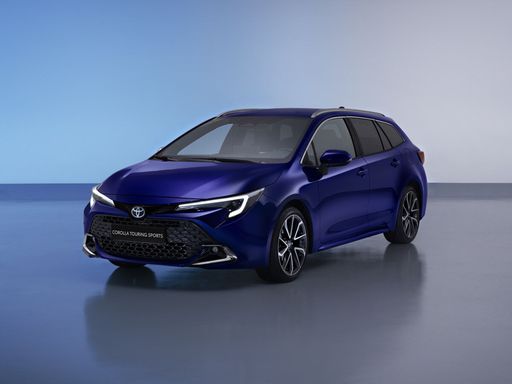
Toyota Corolla Touring Sports
Costs and Consumption
View detailed analysis
Engine and Performance
View detailed analysis
Dimensions and Body
View detailed analysis
Hyundai Bayon
The Hyundai Bayon slips neatly between city runabout and small SUV, offering surprising practicality and a fresh, confident design that stands out in urban traffic. It's an easy buy for shoppers who want smart packaging, tidy handling and a dash of personality without fuss — a sensible little crossover that makes everyday driving a bit more enjoyable.
details




Toyota Corolla Touring Sports
The Toyota Corolla Touring Sports is a sensible yet stylish estate that blends everyday practicality with Toyota's trademark reliability, making it the kind of car that quietly gets on with family life without drama. Inside it's cleverly packaged for luggage and kids' gear and feels calm and comfortable on the road — sensible rather than flashy, but with enough character to make daily drives more enjoyable.
details
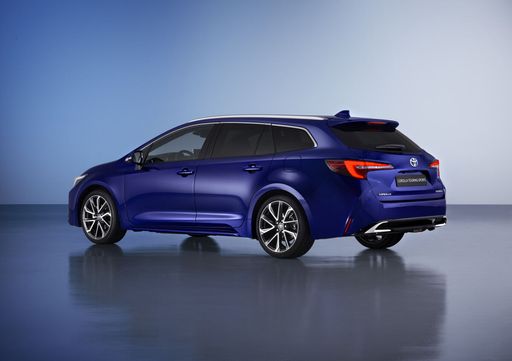
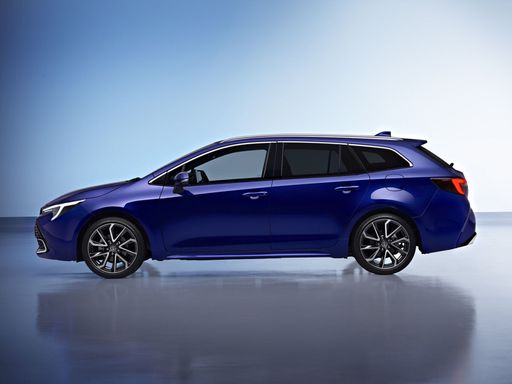
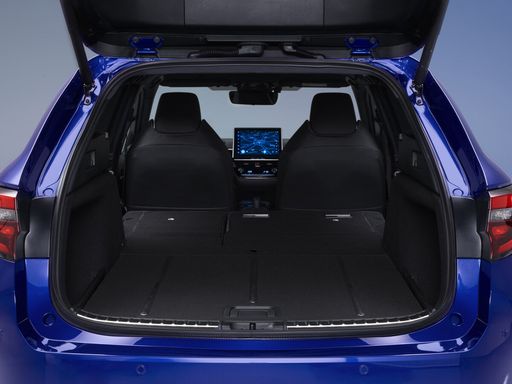
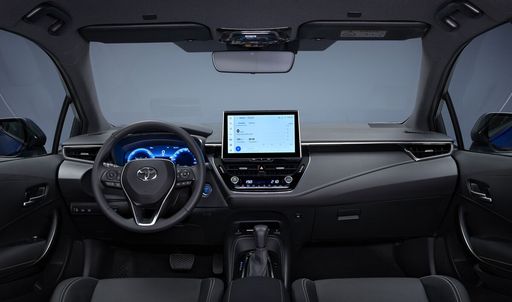

|

|
|
|
|
Costs and Consumption |
|
|---|---|
|
Price
20100 - 25800 £
|
Price
29600 - 36400 £
|
|
Consumption L/100km
5.4 - 5.5 L
|
Consumption L/100km
4.40 L
|
|
Consumption kWh/100km
-
|
Consumption kWh/100km
-
|
|
Electric Range
-
|
Electric Range
-
|
|
Battery Capacity
-
|
Battery Capacity
-
|
|
co2
124 g/km
|
co2
100 g/km
|
|
Fuel tank capacity
40 L
|
Fuel tank capacity
43 L
|
Dimensions and Body |
|
|---|---|
|
Body Type
SUV
|
Body Type
Estate
|
|
Seats
5
|
Seats
5
|
|
Doors
5
|
Doors
5
|
|
Curb weight
1170 - 1195 kg
|
Curb weight
1485 - 1515 kg
|
|
Trunk capacity
411 L
|
Trunk capacity
581 - 596 L
|
|
Length
4180 mm
|
Length
4650 mm
|
|
Width
1775 mm
|
Width
1790 mm
|
|
Height
1500 mm
|
Height
1435 mm
|
|
Max trunk capacity
1205 L
|
Max trunk capacity
1591 - 1606 L
|
|
Payload
460 - 465 kg
|
Payload
400 - 440 kg
|
Engine and Performance |
|
|---|---|
|
Engine Type
Petrol
|
Engine Type
Full Hybrid
|
|
Transmission
Manuel, Automatic
|
Transmission
Automatic
|
|
Transmission Detail
Manual Gearbox, Dual-Clutch Automatic
|
Transmission Detail
CVT
|
|
Drive Type
Front-Wheel Drive
|
Drive Type
Front-Wheel Drive
|
|
Power HP
100 HP
|
Power HP
140 - 178 HP
|
|
Acceleration 0-100km/h
11.3 - 12.4 s
|
Acceleration 0-100km/h
7.5 - 9.2 s
|
|
Max Speed
176 - 179 km/h
|
Max Speed
180 km/h
|
|
Torque
172 - 200 Nm
|
Torque
-
|
|
Number of Cylinders
3
|
Number of Cylinders
4
|
|
Power kW
74 kW
|
Power kW
103 - 131 kW
|
|
Engine capacity
998 cm3
|
Engine capacity
1798 - 1987 cm3
|
General |
|
|---|---|
|
Model Year
2024
|
Model Year
2025
|
|
CO2 Efficiency Class
D
|
CO2 Efficiency Class
C
|
|
Brand
Hyundai
|
Brand
Toyota
|
What drivetrain options does the Hyundai Bayon have?
The Hyundai Bayon is available as Front-Wheel Drive.
The prices and data displayed are estimates based on German list prices and may vary by country. This information is not legally binding.
